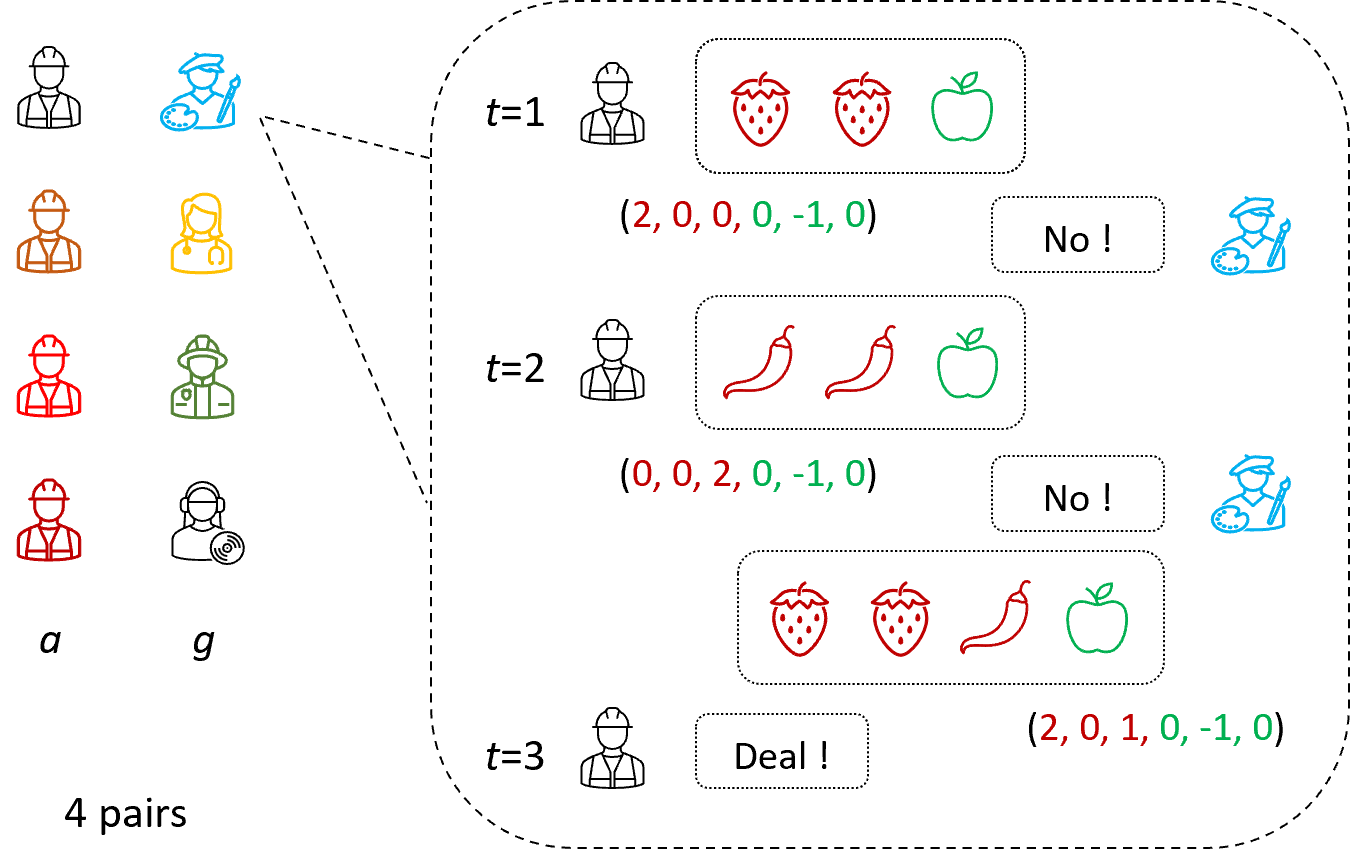Abstract#
We present a novel contextual combinatorial bandit approach for automated negotiation in multi-agent settings. Our method addresses the challenge of learning effective negotiation strategies when the opponent’s behavior and preferences are unknown.
Introduction#
Automated negotiation is a fundamental problem in multi-agent systems, with applications ranging from resource allocation to market trading. Traditional approaches often assume perfect information about opponent preferences, which is unrealistic in many real-world scenarios.
Problem Formulation#
We formalize the negotiation problem as a contextual combinatorial bandit where:
- Actions: Negotiation offers (combinations of items/terms)
- Context: Current negotiation state and opponent behavior history
- Rewards: Negotiation outcomes (acceptance/rejection and utility)
Method#
Contextual Combinatorial Bandit Framework#
Our approach extends the combinatorial bandit setting to incorporate:
- Context-aware Policy: Learns to adapt strategies based on negotiation context
- Combinatorial Action Space: Handles complex offer structures
- Online Learning: Adapts to opponent behavior during negotiation
Algorithm Design#
The core algorithm follows these steps:
- Context Extraction: Extract relevant features from current negotiation state
- Offer Generation: Use upper confidence bounds to select promising offers
- Response Learning: Update model based on opponent’s response
- Strategy Adaptation: Refine negotiation strategy over time
Theoretical Analysis#
We provide regret bounds for our algorithm, showing:
- Sublinear Regret: O(√T log T) regret with respect to optimal strategy
- Context Adaptation: Improved bounds when context is informative
- Combinatorial Efficiency: Polynomial dependence on action space complexity
Experimental Results#
Simulated Environments#
- Bilateral Negotiation: Consistent improvements over baseline strategies
- Multi-issue Negotiation: Effective handling of complex negotiation spaces
- Opponent Adaptation: Quick adaptation to different opponent types
Real-world Application#
- Online Marketplace: Improved success rates in automated trading
- Resource Allocation: Better outcomes in distributed resource sharing
Key Contributions#
- Novel Formulation: First to cast negotiation as contextual combinatorial bandit
- Theoretical Guarantees: Rigorous analysis with regret bounds
- Practical Algorithm: Efficient implementation with strong empirical performance
- Broad Applicability: Demonstrated effectiveness across multiple domains
Related Work#
Our work builds upon:
- Combinatorial bandits literature
- Game-theoretic approaches to negotiation
- Online learning in multi-agent systems
Conclusion#
We have presented a principled approach to automated negotiation using contextual combinatorial bandits. Our method provides both theoretical guarantees and practical performance improvements, opening new directions for research in multi-agent learning.
Citation#
@inproceedings{li2024negotiation,
title={A Contextual Combinatorial Bandit Approach to Negotiation},
author={Li, Yexin and Mu, Zhancun and Qi, Siyuan},
booktitle={International Conference on Machine Learning},
year={2024}
}